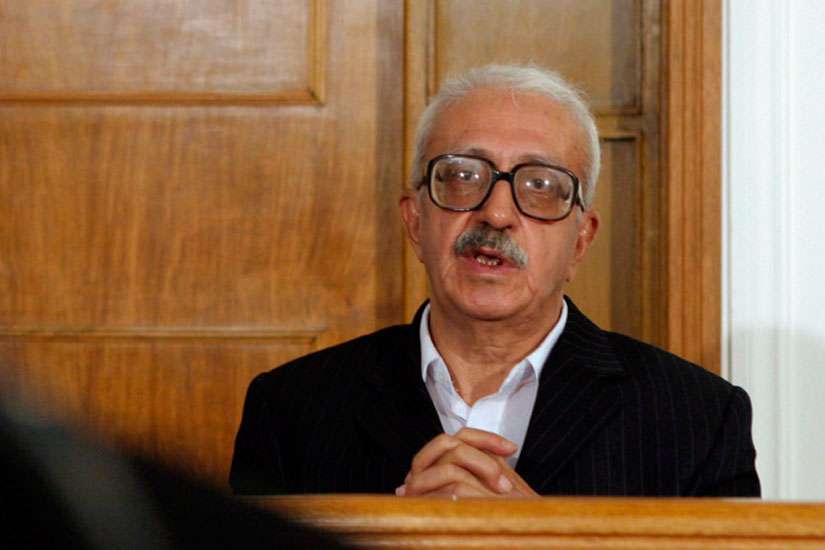Aziz, 79, died in a hospital in the southern Iraq city of Nasiriya after being transferred from a prison where he had been held under a death sentence since being convicted in 2010 for his role in the 1992 execution of more than three dozen merchants found guilty of profiteering and for his role in the forced displacement of Kurds in northern Iraq.
After the conviction, the Vatican expressed hope that the Iraqi government would not to carry out the execution.
Adel Aldikhaly, deputy governor of Nasiriya, said Aziz had been in poor health with "a long-term incurable disease" for several years before his death, news reports said.
Fluent in English, Aziz was the highly visible Iraqi official who defiantly defended Saddam's actions and repeatedly challenged the United States and its allies during the 1991 and 2003 wars. He predicted the chaos that would envelope Iraq and much of the Middle East before the 2003 U.S.-led invasion as coalition forces sought to topple Saddam and locate weapons of mass destruction, which were never found.
In the lead up to the second war, Aziz met with St. John Paul II, as the Vatican engaged in a flurry of diplomatic activity to try to prevent the U.S.-led invasion.
In 1998, Aziz also travelled to the Vatican and met with St. John Paul II. He told Rome reporters he gave the pope a letter form Saddam asking the Vatican's help in lifting the UN-imposed sanctions on Iraq.
Despite belonging to Iraq's Christian minority, Aziz rose to the highest ranks of Saddam's Sunni Muslim-dominated government. The two began working together in the 1950s when both were activists in the then-banned Baath Party. As Saddam rose in power, Aziz was at his side, serving as one of the most visible of the Iraqi dictator's lieutenants.
He served as Iraq's foreign minister from 1983 to 1991 and deputy prime minister between 1979 and 2003.
Before the 2003 war began, he said he would rather die than be taken into U.S. custody. However, soon after the invasion began, he turned himself in to U.S. troops after his son arranged for his surrender. He was among the U.S.-led coalition's most wanted individuals, appearing as the eight of spades in the American "deck of cards" identifying key members of the government identified for death or incarceration.
Aziz never joined the military but still played a major role in repressing his countrymen. Aziz survived an assassination attempt in 1980 by the Iranian-backed Shia forces and in response, Saddam carried out a nationwide rampage against anyone who opposed him, using oppressive tactics that continued until he was forced from office.
The late diplomat was born near Mosul in northern Iraq April 28, 1936, to a Chaldean Catholic family. His name in Syriac, the language used by Chaldeans, was Mikhail Yuhanna, or Michael John.
No information about survivors or funeral arrangements was available.


